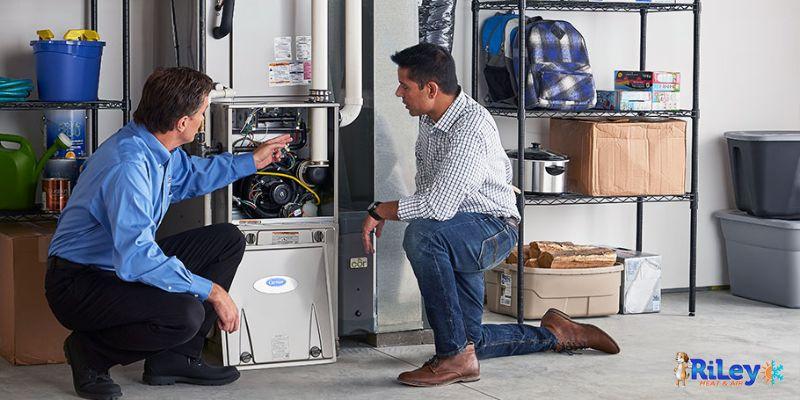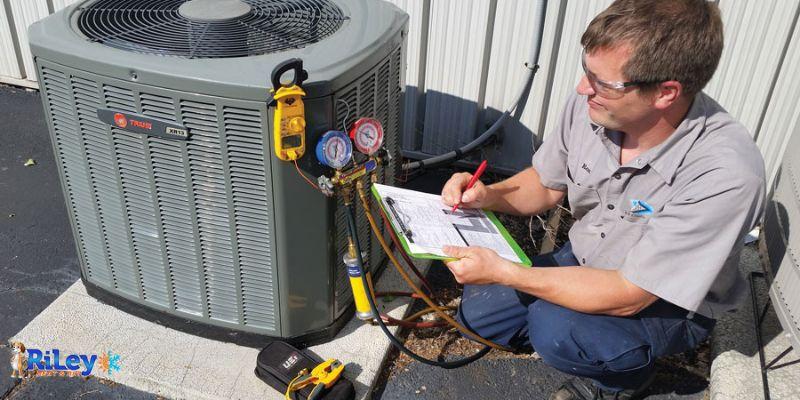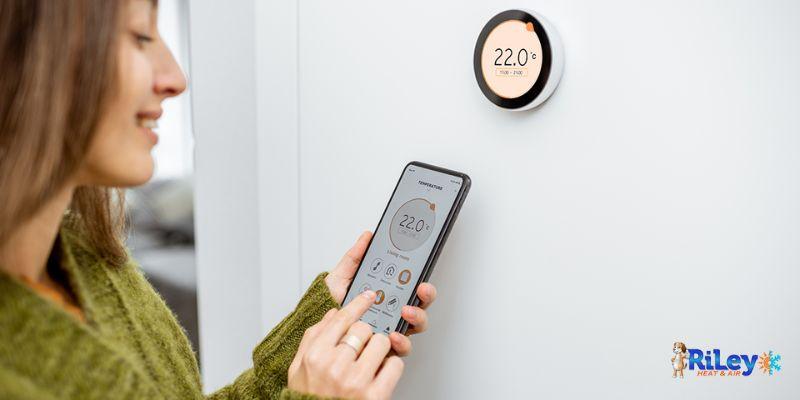
Maximizing Heating Efficiency: Proven Strategies to Improve Furnace Performance
As the cold winds of winter descend upon us, there is no better time to ensure that your home is a cozy, warm haven. With energy costs on the rise, maximizing heating efficiency has never been more important. Fortunately, there are proven strategies to improve your furnace's performance and keep your home toasty without breaking the bank.
In this article, we will delve into home heating, exploring tried-and-true methods to boost your furnace's efficiency. From simple maintenance tips to advanced technological solutions, we will guide you through the steps you can take to not only enhance your home's warmth but also reduce your energy bills.
Tips to Maximize Heating Efficiency
1. Regular Maintenance: The Foundation of Efficiency

Before diving into the more advanced strategies, it is essential to emphasize the significance of regular furnace maintenance. Like any mechanical system, your furnace requires attention to perform optimally. Neglecting it can result in lower efficiency, increased energy consumption, and even costly breakdowns.
Regular maintenance should include:
- Changing the air filter: A clogged filter restricts airflow, making your furnace work harder to distribute warm air. Replace or clean it every 1-3 months.
- Cleaning the blower and fan: Dust and debris can accumulate on the blades, reducing efficiency. Regularly clean these components to ensure smooth operation.
- Lubricating moving parts: Proper lubrication reduces friction and keeps the furnace running smoothly, increasing lifespan.
- Inspecting the ductwork: Leaky or poorly insulated ducts can result in heat loss. Seal gaps and insulate ducts to minimize waste.
- Checking for gas leaks: If your furnace runs on natural gas, ensure no gas leaks. Gas leaks can be dangerous and impact your heating efficiency.
2. Smart Thermostats : Precision Control
 One of the most effective ways to improve heating efficiency is by upgrading to a smart thermostat. These devices offer precise control over your heating system, allowing you to create a customized heating schedule that suits your lifestyle. With features like remote access and learning capabilities, they can adapt to your preferences, ultimately reducing energy consumption.
Here is how a smart thermostat can boost your furnace's performance:
One of the most effective ways to improve heating efficiency is by upgrading to a smart thermostat. These devices offer precise control over your heating system, allowing you to create a customized heating schedule that suits your lifestyle. With features like remote access and learning capabilities, they can adapt to your preferences, ultimately reducing energy consumption.
Here is how a smart thermostat can boost your furnace's performance:
- Programmed schedules: Set specific temperature profiles for different times of the day and days of the week. This ensures that your furnace operates only when needed.
- Geofencing: Many smart thermostats can detect when you are not at home and adjust the temperature accordingly, saving energy while you are away.
- Learning capabilities: Some models can learn your heating habits and automatically optimize the temperature, eliminating the need for constant manual adjustments.
- Remote control: Control your thermostat from your smartphone or computer, allowing you to make real-time adjustments when necessary.
- Energy consumption monitoring: Track your energy usage and identify patterns to help you make informed decisions about your heating settings.
3. Zoning Systems: Tailored Comfort
Traditional heating systems often distribute warm air evenly throughout the entire house. However, not all rooms require the same level of heating. Zoning systems offer a more targeted approach, allowing you to customize the temperature in different areas of your home. By only heating the rooms you are using, you can significantly improve heating efficiency. Key benefits of zoning systems:- Lower energy consumption: Zoning systems reduce the need to heat unused spaces, resulting in energy savings.
- Enhanced comfort: Maintain the perfect temperature in every room, catering to individual preferences.
- Extended system lifespan: By reducing the workload on your furnace, zoning systems can extend their lifespan, saving you money in the long run.
- Environmental impact: Less energy consumption means a smaller carbon footprint, contributing to a greener planet.
4. Efficient Furnace Upgrades: Modernization Is the Key
If your furnace is outdated, upgrading to a more energy-efficient model can lead to substantial improvements in heating performance. Modern furnaces have advanced features that optimize heating efficiency and reduce energy consumption. Here are some factors to consider when upgrading your furnace:- Fuel efficiency: Newer furnaces are built with higher AFUE (Annual Fuel Utilization Efficiency) ratings, which indicate how efficiently they convert fuel into heat. Look for models with higher AFUE ratings to save on energy costs.
- Variable-speed motors: Furnaces with variable-speed motors can adjust their airflow to match your heating needs, reducing energy waste.
- Dual-stage heating: Dual-stage furnaces have two levels of heating capacity, allowing them to operate at a lower, more energy-efficient setting when the weather is not extremely cold.
- Sealed combustion: Sealed combustion systems use outdoor air to improve efficiency and safety, particularly in tightly sealed homes.
- Energy-efficient controls: Advanced control systems can optimize furnace operation and ensure consistent and efficient heating.
5. Adequate Insulation: A Barrier Against Heat Loss
Inadequate insulation is a significant culprit in heat loss in homes. Without proper insulation, the warm air generated by your furnace can escape through walls, ceilings, and floors. This results in higher heating bills and a less comfortable living environment. To maximize heating efficiency, consider these insulation strategies:- Attic insulation: Adding or upgrading insulation in your attic can prevent heat from escaping through the roof. Insulation materials like fiberglass, cellulose, or foam can increase your home's energy efficiency.
- Wall insulation: Insulating exterior walls can be a substantial investment, but it can pay off over time by reducing energy consumption.
- Floor insulation: If you have a basement or crawl space, insulating the floors above these areas can help retain heat.
- Weatherstripping and caulking: Seal gaps and cracks around doors, windows, and other openings in your home to prevent cold drafts and heat loss.
- Insulate ductwork: Insulating ducts in unconditioned spaces, such as the attic or basement, can reduce heat loss during the distribution of warm air.
Conclusion
Maximizing heating efficiency is not only a way to save on energy costs but also a step towards a greener, more sustainable future. By implementing the strategies outlined in this article, you can improve your furnace's performance, reduce your environmental impact, and enjoy a warmer, more comfortable home.From regular maintenance to modernizing your heating system and addressing insulation and drafts, numerous ways exist to enhance your home's heating efficiency. Consider the unique needs of your home, budget, and personal preferences when choosing the right strategies. Remember, a warm and efficient home is not just a luxury; it is a smart and responsible choice.
COMMENTS
LEAVE A COMMENT







This blog outlines proven strategies to maximize heating efficiency and enhance furnace performance. In a world where energy conservation is paramount, the insights provided are practical and contribute to sustainable living. Kudos to the author for offering valuable tips to keep homes warm without compromising efficiency!
This blog outlines proven strategies to maximize heating efficiency and enhance furnace performance. In a world where energy conservation is paramount, the insights provided are practical and contribute to sustainable living. Kudos to the author for offering valuable tips to keep homes warm without compromising efficiency!